When someone overdoses, every second counts. But calling 911 isn’t always the right first step-and not calling it when you should can be deadly. The difference between life and death often comes down to one decision: poison control or emergency services?
When to Call Poison Control
Poison Control is there to help when the situation is serious but not immediately life-threatening. If the person is awake, breathing normally, and showing no severe symptoms, you should call 1-800-222-1222 right away. This free, 24/7 service connects you to a toxicology expert who can guide you through what to do next-often keeping the person safe at home.Common situations where Poison Control is the best first move include:
- Accidentally taking a double dose of a prescription pill, like ibuprofen or blood pressure medication
- A child swallowing one or two pills from a bottle, and they’re acting normal
- Ingesting a household cleaner, like dish soap or laundry detergent, with no vomiting or breathing issues
- Someone taking too much of an over-the-counter medicine, like acetaminophen, but still alert and talking
Before you call, gather these details:
- The exact name of the substance (check the bottle-"Tylenol" isn’t enough; you need "acetaminophen 500 mg extended-release")
- How much was taken (in milligrams or milliliters, not "a handful")
- When it happened (within the last 15 minutes matters)
- The person’s weight in kilograms (most people guess this wrong-use a scale if possible)
- Any symptoms that started, and when
Experts say if no symptoms appear within 4 hours after exposure to most common drugs, the risk of serious harm drops sharply. Poison Control can tell you whether to wait, watch, or head to the ER. In 2022, over 82% of single-substance pediatric cases handled by Poison Control were safely managed without an ER visit.
When to Call 911 Immediately
If the person is unresponsive, struggling to breathe, having seizures, or their heart is racing or skipping beats-call 911 right now. Don’t wait. Don’t call Poison Control first. Don’t try to figure it out yourself.These are the red flags that mean emergency services are needed:
- They can’t wake up, even when you shake them or pinch their shoulder
- They’re breathing very slowly, shallowly, or not at all
- They’re having convulsions or jerking movements that last more than 5 minutes
- Their skin is blue, gray, or cold to the touch
- They have a very low blood pressure (feels like they’re slipping away)
These signs mean the body is shutting down. In opioid overdoses, for example, breathing stops before the heart does. That’s why naloxone (Narcan) should be given immediately-if you have it-and then 911 must be called, even if they wake up. Synthetic opioids like fentanyl can wear off faster than the drug in their system, and they can stop breathing again minutes later.
Also, call 911 right away if:
- The overdose was intentional (suicide attempt)
- Multiple drugs were taken together
- The person is under 1 year old or over 79 years old
- They swallowed something unknown-like a pill they found, or a substance from a party
For older adults, even a small overdose can be deadly. Most take 5 or more medications daily, and mixing them can cause sudden, unpredictable collapse. For babies, their bodies process drugs differently-what’s harmless to an adult can be fatal to a toddler.
Why Not Just Call Poison Control for Everything?
It’s tempting. Poison Control is fast, free, and staffed by experts. But they can’t send an ambulance. They can’t give oxygen. They can’t intubate someone who’s stopped breathing.Emergency responders have tools and training that Poison Control doesn’t. And when seconds matter, delay can be fatal.
Studies show that 68% of ER doctors have seen patients arrive after calling Poison Control for high-risk overdoses-like calcium channel blockers or beta-blockers-that caused sudden heart failure hours later. These drugs don’t always cause symptoms right away. Poison Control might say "watch and wait," but if the person’s heart starts to fail at 2 a.m., they won’t make it to the hospital in time.
Similarly, opioid overdoses involving fentanyl or carfentanil can appear mild at first. Naloxone might reverse the effects, but the drug lingers. Without EMS monitoring, the person can slip back into respiratory arrest. In one 2024 study, 61% of cases where people called Poison Control for suspected fentanyl overdoses ended up needing 911 within 20 minutes.
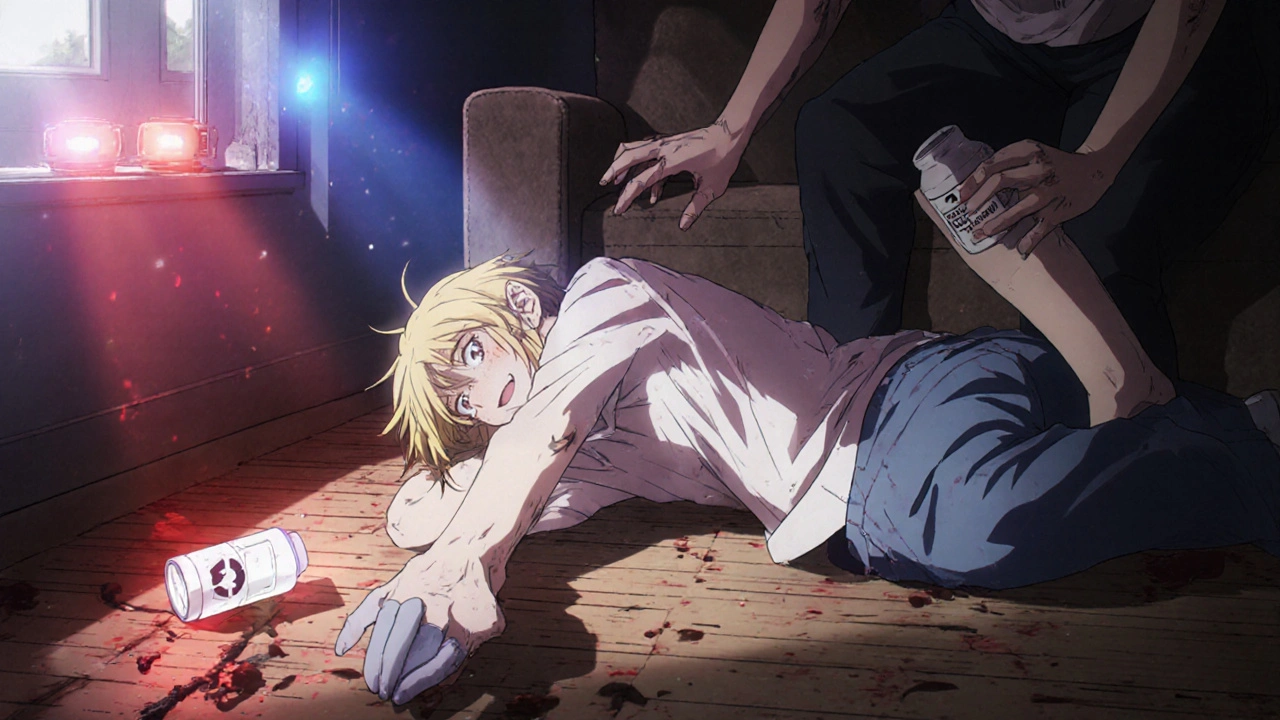
What About Online Tools Like webPOISONCONTROL?
The webPOISONCONTROL website and app are useful for low-risk cases. You answer 12 simple questions-what was taken, how much, how old is the person-and it gives you a risk level and advice.But here’s the catch: it’s not for everyone. The system can’t handle:
- People who are already showing symptoms
- Multiple substance ingestions
- Intentional overdoses
- Children under 1 year or adults over 79
And here’s the problem: 18% of people who use the app think it’s a substitute for calling a real person. They skip the hotline and try to manage a dangerous situation themselves. That’s how preventable deaths happen.
Use the app only if the person is completely fine and you’re certain it’s a low-risk exposure. Otherwise, pick up the phone.
Special Cases That Change the Rules
Some exposures need special handling:- Carbon monoxide poisoning: Even if someone feels dizzy or has a headache, call 911 immediately. The damage to the brain and heart can show up hours later. Poison Control will tell you to get out of the house and call 911-no exceptions.
- Clonidine or sulfonylurea pills: These are rare, but deadly in tiny amounts. A child swallowing just one clonidine pill can go into a coma. Call 911, not Poison Control.
- Illicit drugs: If you don’t know what was taken, assume the worst. Call 911. Synthetic drugs like fentanyl, nitazenes, or benzodiazepine analogs can cause sudden, unpredictable collapse.
For kids under 6: If they swallow one pill and are acting fine, call Poison Control. But if it’s a heart medication, insulin, or psychiatric drug-call 911. The margin for error is zero.
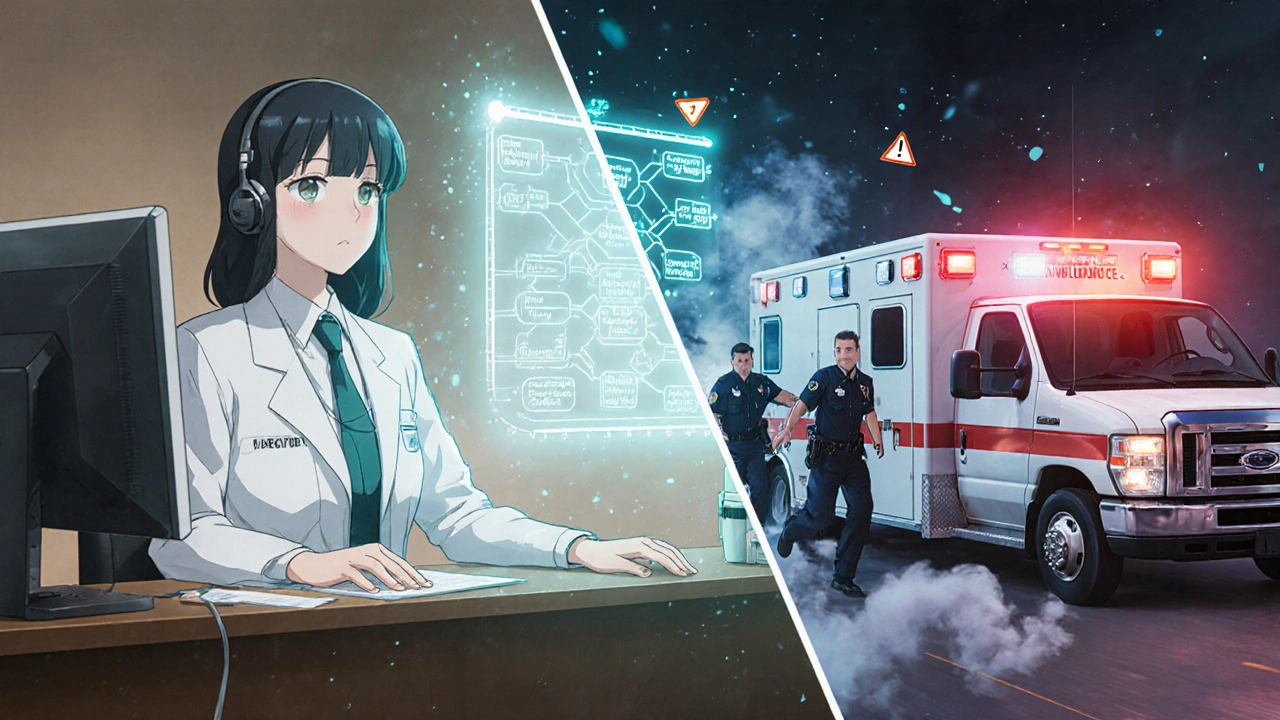
What to Do While Waiting for Help
If you’re calling 911:- Stay on the line. The dispatcher will give you instructions while help is coming.
- If you have naloxone and suspect an opioid overdose, administer it now.
- Do not give them anything to eat, drink, or vomit unless told to by a medical professional.
- Keep them on their side if they’re unconscious-this keeps their airway open.
If you’re calling Poison Control:
- Have the container in hand. The label tells them the exact strength and formulation.
- Do not induce vomiting unless they tell you to. It can cause more harm.
- Write down everything they say. You’ll need to repeat it to paramedics if you go to the ER.
What Happens After the Call?
If Poison Control tells you to stay home, they’ll likely ask you to check in again in 2-4 hours. Watch for any change in behavior, breathing, or alertness. If anything changes, call 911 immediately.If you go to the ER, bring the pill bottle or substance container. Emergency staff need to know exactly what was taken. Many overdoses involve multiple drugs, and without the label, they’re guessing.
Even if the person seems fine after treatment, follow-up matters. Some toxins cause delayed organ damage-like liver failure from acetaminophen-that doesn’t show up until 24-48 hours later.
Final Rule: When in Doubt, Call 911
There’s no penalty for calling 911 too early. There’s no shame in being cautious. Emergency services are trained to handle these calls. They’ve seen it all.Poison Control is a lifesaver-but it’s not a substitute for emergency care when the body is failing. The goal isn’t to avoid the hospital. The goal is to keep someone alive long enough to get the care they need.
If you’re unsure, call 911. Then call Poison Control while you wait. You can do both. They work together.
Can I call Poison Control for a suspected drug overdose?
Yes-but only if the person is awake, breathing normally, and showing no serious symptoms. If they’re unresponsive, having trouble breathing, or having seizures, call 911 immediately. Poison Control is for guidance, not emergency response.
What if I don’t know what was taken?
Call 911. Unknown substances, especially street drugs or pills from unknown sources, can contain deadly synthetic opioids like fentanyl. Even if the person seems okay now, the risk of sudden collapse is too high to wait.
Is it safe to wait and see if symptoms develop?
Only if the person is fully alert, breathing normally, and you’re certain it’s a single, low-risk substance like a single extra dose of ibuprofen. For medications like heart pills, insulin, or psychiatric drugs-even one extra pill can be dangerous. When in doubt, call 911.
Can I use the Poison Control app instead of calling?
The app is useful for low-risk, asymptomatic cases. But it cannot handle symptoms, multiple substances, intentional overdoses, or high-risk populations like infants or seniors. Never rely on the app alone. If you’re unsure, call 1-800-222-1222.
What if I’m worried about getting in trouble for calling 911?
Emergency responders are trained to help, not judge. Most states have Good Samaritan laws that protect people who call for help during an overdose. Saving a life is the priority. Don’t let fear stop you from acting.
Does Poison Control work in rural areas?
Yes. The national hotline (1-800-222-1222) routes you to the nearest poison center, even in remote areas. However, some rural centers have fewer staff, so response times may be slightly longer. If the person is in danger, call 911 first-then call Poison Control for follow-up advice.
What should I do if I find pills or substances in someone’s room?
Don’t touch them. Secure the area, and if you suspect someone may have taken them, call 911 immediately. If they’re not showing symptoms yet, call Poison Control for guidance on what to watch for. But if there’s any chance ingestion occurred, treat it as an emergency.

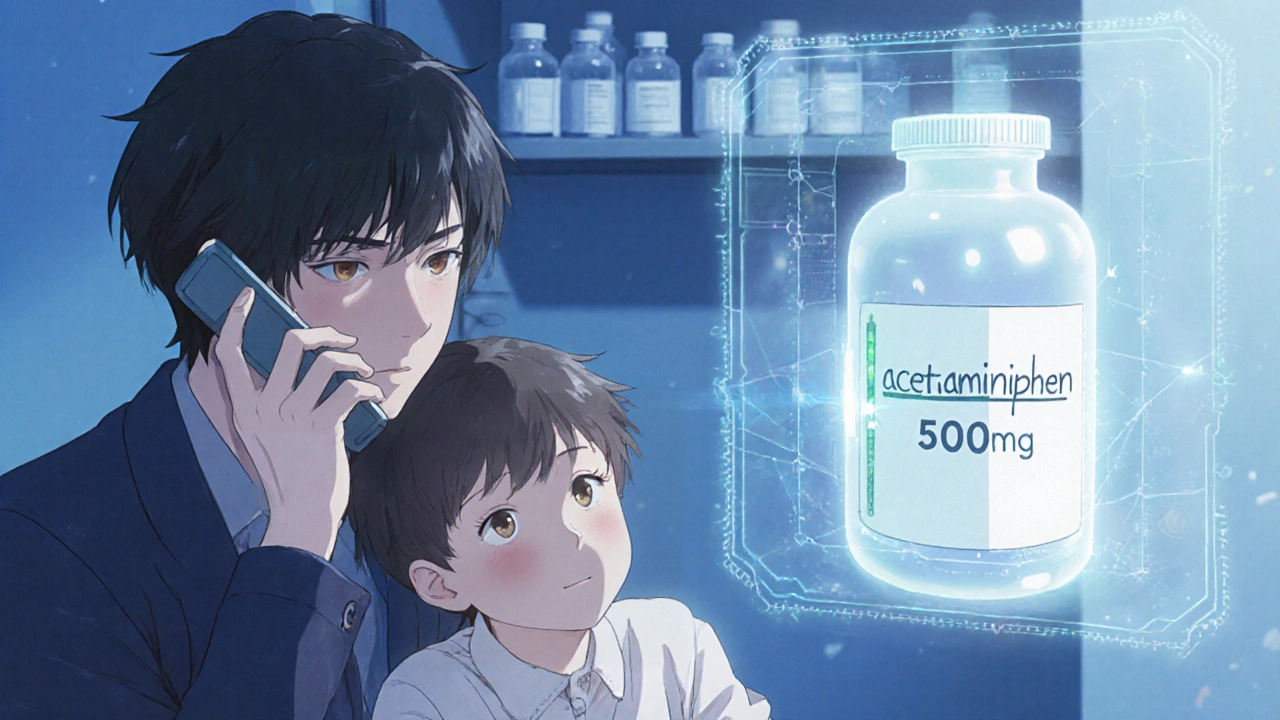

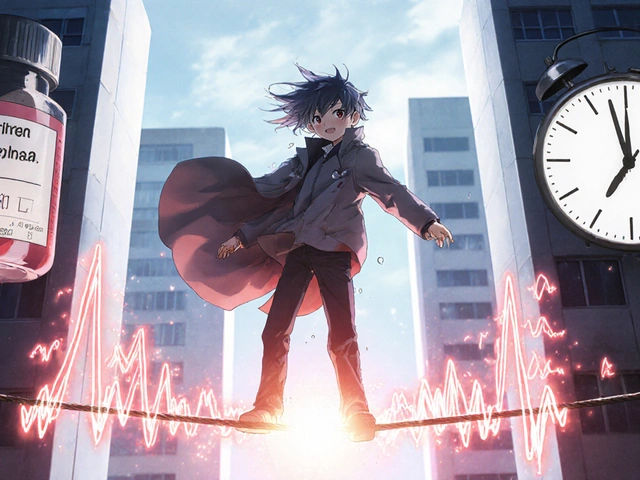
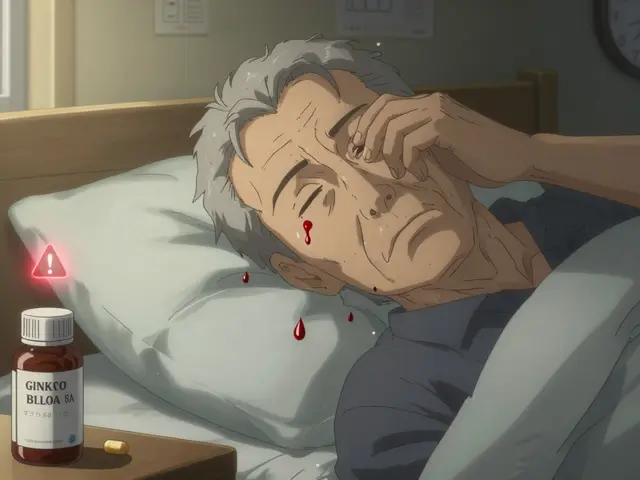
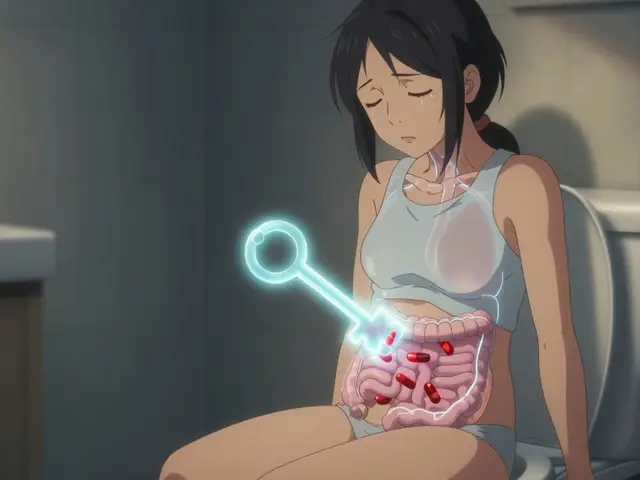
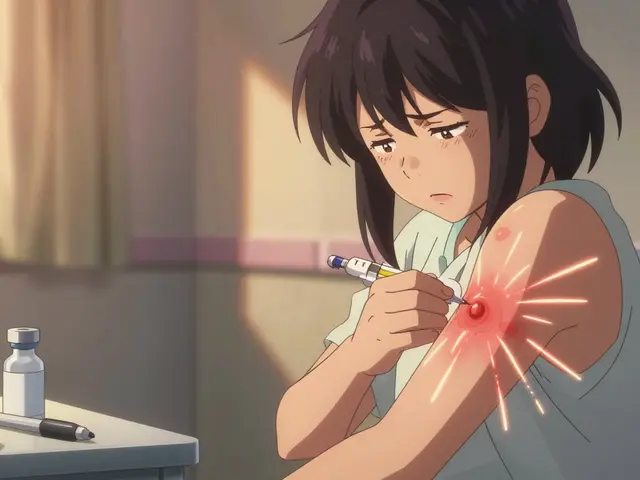
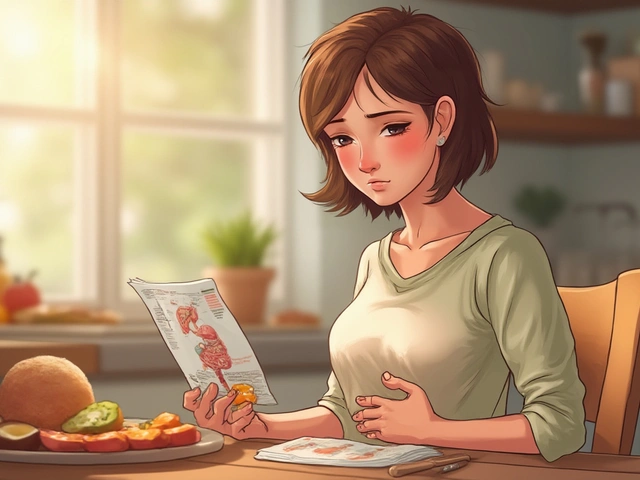
Aidan McCord-Amasis
November 16, 2025 AT 00:47Just call 911. Always. 🤷♂️🔥
Edward Ward
November 17, 2025 AT 09:47I really appreciate how thorough this is-seriously, someone took the time to break down the nuances between Poison Control and 911, and it’s not just about what to do, but why. For example, the point about fentanyl’s half-life outlasting naloxone’s effect? That’s critical. Most people think if Narcan wakes someone up, they’re fine. But no. That’s when the real danger begins. And the stats about 61% of fentanyl cases needing EMS within 20 minutes? That’s terrifying-and I’ve seen it firsthand. My cousin called Poison Control after an accidental fentanyl exposure because he didn’t want to "overreact." He was fine for 17 minutes. Then his breathing stopped. By the time EMS got there, it was too late. This post should be mandatory reading for every parent, caregiver, and college student. Seriously.
Andrew Eppich
November 18, 2025 AT 00:38It is both irresponsible and dangerously misleading to suggest that Poison Control is a viable alternative to emergency services in any circumstance involving potential overdose. The medical community has long established that time is of the essence, and any delay in activating the full spectrum of emergency care constitutes negligence. One must not confuse convenience with competence. The fact that some individuals choose to rely on automated systems or hotlines instead of summoning professional responders speaks to a broader societal decline in accountability. Call 911. Always.
Jessica Chambers
November 18, 2025 AT 12:35So... you're telling me I should call 911 if my 3-year-old swallows one Advil? 😏
Shyamal Spadoni
November 19, 2025 AT 22:14you know what's really happening here? poison control is a government tool to make you think you're safe while the pharma giants keep selling pills like candy. they want you to call them so they can log your data, track your habits, and feed it to the insurance companies. meanwhile, 911? that's the real emergency system. but they don't want you to know that poison control is just a middleman for big pharma to avoid liability. they'll tell you "watch and wait" so you don't go to the hospital and they don't have to pay for the treatment. it's all a scam. and don't even get me started on webPOISONCONTROL-it's a spy app disguised as help. i've seen it. they track your IP, your location, your search history. they know everything. call 911. always. and burn your phone after.
Ogonna Igbo
November 20, 2025 AT 14:21In Nigeria, we don't have poison control centers that work like this. If your child swallows something, you run to the nearest clinic or just pray. The idea that you can call a hotline and get expert advice in 30 seconds? That’s a luxury of rich countries. Here, if you’re lucky, you get a nurse who’s never seen a drug overdose before. So yes, call 911-but here, we call the nearest man with a car. That’s our poison control. And if you’re thinking about using an app? Good luck finding Wi-Fi in rural areas. This post is great for America, but it’s irrelevant for most of the world. Stop pretending your system is universal.
BABA SABKA
November 20, 2025 AT 20:42Look, I’m not a doctor, but I’ve seen enough overdoses in the streets to know this: if someone’s breathing funny, you don’t wait for a toxicologist to tell you what to do. You grab Narcan, you slap them, you yell for help. Poison Control? That’s for people who still think "it’s just one pill" and don’t realize fentanyl’s in everything now. The system’s broken. The app’s useless. And yeah, I’ve called 911 three times this year for friends who thought they were "fine." Two of them are dead now. Don’t be that guy. Call 911. No excuses.
Chris Bryan
November 21, 2025 AT 13:19They want you to think Poison Control is safe. But what if it’s a trap? What if they’re just delaying you so the DEA can track your location? I’ve seen the documents. They share data with Homeland Security. If you call Poison Control for a suspected opioid overdose, they flag your name, your address, your phone. Then you get visited by a "social worker"-who’s really an undercover cop. They don’t care if you live or die. They care if you’re a criminal. Call 911. At least they’re not recording your every word.
Jonathan Dobey
November 23, 2025 AT 00:27There’s a deeper metaphysical truth here: the binary of Poison Control vs. 911 is a false dichotomy constructed by a medical-industrial complex that profits from your fear. We’ve been conditioned to believe that life is either "managed" (by a hotline) or "rescued" (by sirens). But what if the real crisis isn’t the overdose-it’s our alienation from embodied care? We’ve outsourced compassion to algorithms and dispatchers. The child who swallows a pill isn’t a case number. She’s a human being. And the mother who holds her-shaking, trembling, terrified-is the only true first responder. No app can replicate the weight of a hand on a forehead. No hotline can echo the silence after a breath. Call 911? Yes. But call your neighbor. Call your aunt. Call the person who remembers how to hold space when the world falls apart. That’s the real antidote.
ASHISH TURAN
November 23, 2025 AT 04:37Good breakdown. I work in a rural ER and see this all the time. People call Poison Control for things that need 911 because they’re scared of the hospital bill or think they’ll get in trouble. Then they show up 4 hours later in cardiac arrest. The system isn’t perfect, but the advice here is spot-on: if there’s any doubt, call 911. And if you’re not sure what was taken? Call both. Poison Control can give you info while EMS is en route. They’re not competitors-they’re teammates. Just don’t waste time googling or using an app. Time is brain. Time is heart. Time is life.
Aidan McCord-Amasis
November 24, 2025 AT 16:41Actually, I called Poison Control for my kid and they told me to watch for 4 hours. She’s fine. So chill out, drama queens. 🙃